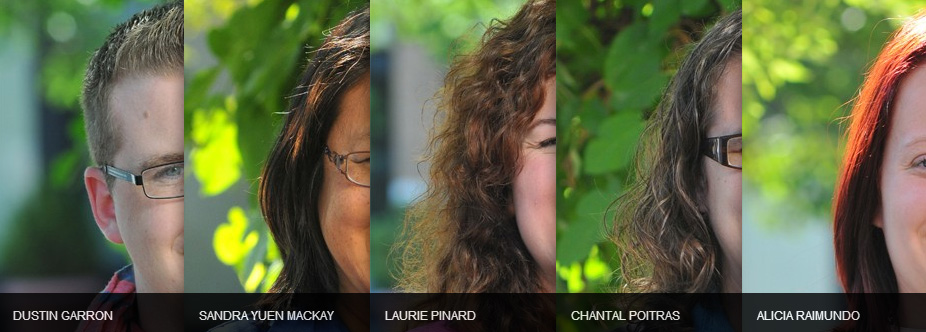Faces of Mental Illness - Recovery is Possible
This week is Mental Illness Awareness Week in Canada. (Mental Illness Awareness Week in the U.S. starts next week. Why the two countries couldn’t get together on this I’ll never know.) And in honour of this week, I thought I would feature the Mental Illness Awareness Week’s campaign – the Faces of Mental Illness.
The Faces of Mental Illness Focuses on real people with real mental illnesses who have faced the worst and still found recovery. If you’re looking for some hope, these are the people who will give it to you.
Mental Illness Awareness Week and the Faces of Mental Illness
I like this campaign because it does focus on real life Canadians who have faced their demons and gotten help. While not everyone is in the stage of recovery, it’s something we all can look to as a goal.
Here are the five faces featured this year:
Dustin: Dustin Garron is a student at Carleton University and the founder of The Mental Health Project for Youth . . . Dustin . . . was diagnosed with generalized anxiety disorder, depression, and borderline personality disorder at a young age. After six failed suicide attempts, his seventh attempt resulted in a coma and being placed on life support for four days. Dustin’s miraculous recovery inspired him to seek help . . . Dustin hopes to empower young Canadians with his courageous story and let them know they are not alone . . .
Sandra: Sandra Yuen MacKay is a Canadian-born Chinese artist, author, and public speaker . . . At fourteen, she began experiencing delusions, hallucinations, and severe paranoia. Despite her current diagnosis of schizoaffective disorder, Sandra earned a Fine Arts diploma, an Art History degree . . . and published My Schizophrenic Life: The Road to Recovery from Mental Illness, an inspiring memoir which has received international acclaim . . . She credits meta-cognitive therapy, her loving husband of eighteen years, a strong personal support system, and self-determination for her success. You can watch the HealthyPlace interview with Sandra Yuen McKay talking about the challenges of living with schizoaffective disorder here.
Laurie: Laurie Pinard is an exercise enthusiast and running instructor . . . Throughout young adulthood, Laurie struggled to understand the dramatic highs and lows of her emotions, and it was not until her early forties that she received the correct diagnosis of bipolar disorder. After hitting rock bottom, resulting in the loss of her career and all her possessions, Laurie decided to fight for her life. She sought help in the form of psychiatry, nutritional supplements, mental health courses, and exercise . . . she hopes to encourage others to take ownership of their illness and seek the help they need . . .
Chantal: Chantal Poitras works for the tourism industry and has recently joined Partners for Mental Health as a volunteer . . . Despite a blissfully happy childhood, in 2005, Chantal’s life took a turn for the worst when the emergence of unpredictable and erratic behavior changed her life forever. Scared and confused . . . Chantal finally found the help she needed when she received her correct diagnosis of borderline personality disorder. She has been on a path to recovery ever since. Today, Chantal shares her story through her personal blog in the hopes of letting others know they are not alone and that they too can lead a healthy and productive life . . .
Alicia: Alicia Raimundo is public speaker and youth mental health advocate . . . Having struggled with depression and anxiety since childhood, Alicia explains her story as a metaphorical journey from one kind of superhero to another. Like Spiderman, Alicia felt she had to fight in the dark and mask her true identity. Eventually, tired of hiding, Alicia decided to put a face on mental illness and has since found her voice, transforming into something of an Ironman! Today, Alicia is an active mental health advocate, speaking at Universities across Canada to encourage young Canadians to remove the mask and embrace their own inner superhero . . . [she] credits her active involvement in the mental health community as fundamental to her recovery.
For more on these folks, see here.
Recovery from Mental Illness is Different for Everyone
Now I’m not saying that you have to publish a book or become a university speaker to have recovered from mental illness – far from it. Recovery is different for everyone and recovery might mean maintaining a steady job, or maintaining a marriage, or being a good parent, or being able to live independently. We’re all different and our idea of recovery is different.
But I am saying that recovery is possible. The above people all faced major mental illness challenges, even death, and yet they have come out the other side. It’s not easy, and sometimes it takes many years, but recovery, in whatever form, does happen. For Mental Illness Awareness Week try to believe in that.
For additional perspective read: The Problem with the “Faces of Mental Illness” Campaign.
You can find Natasha Tracy on Facebook or GooglePlus or @Natasha_Tracy on Twitter.
APA Reference
Tracy, N.
(2012, October 1). Faces of Mental Illness - Recovery is Possible, HealthyPlace. Retrieved
on 2026, January 12 from https://www.healthyplace.com/blogs/breakingbipolar/2012/10/faces-mental-illness-recovery-possible
Author: Natasha Tracy
This is great. Real stories about real people. We need a steady dose of positive news like this! I just want to add that it's important that once we know recovery is possible, we not stigmatize, blame or minimize the challenges of those who have not reached some level of recovery. Don't get caught in comparing people and their progress toward recovery. I do this to myself and suspect a few others of doing it to me also -- it's not helpful.

